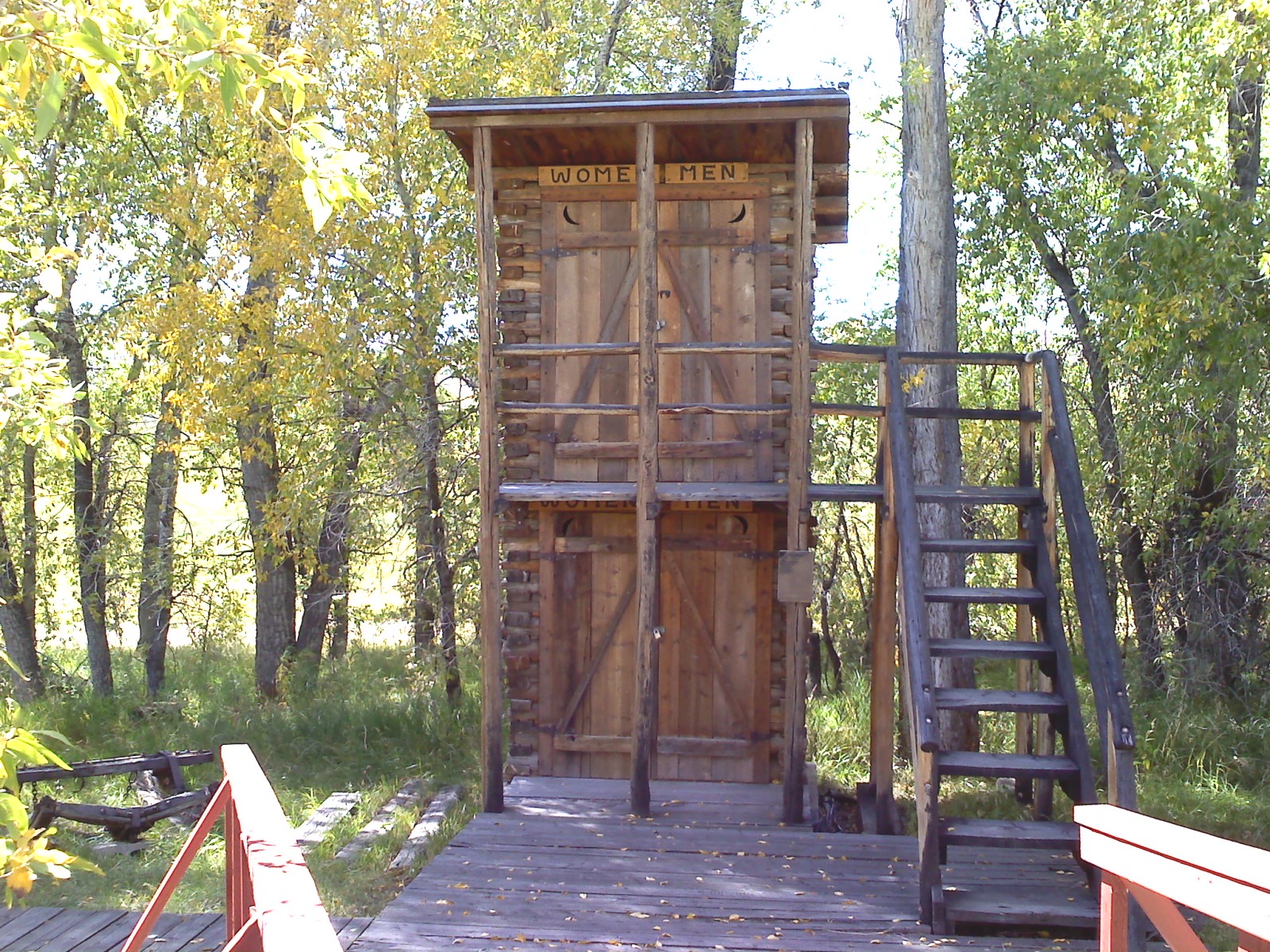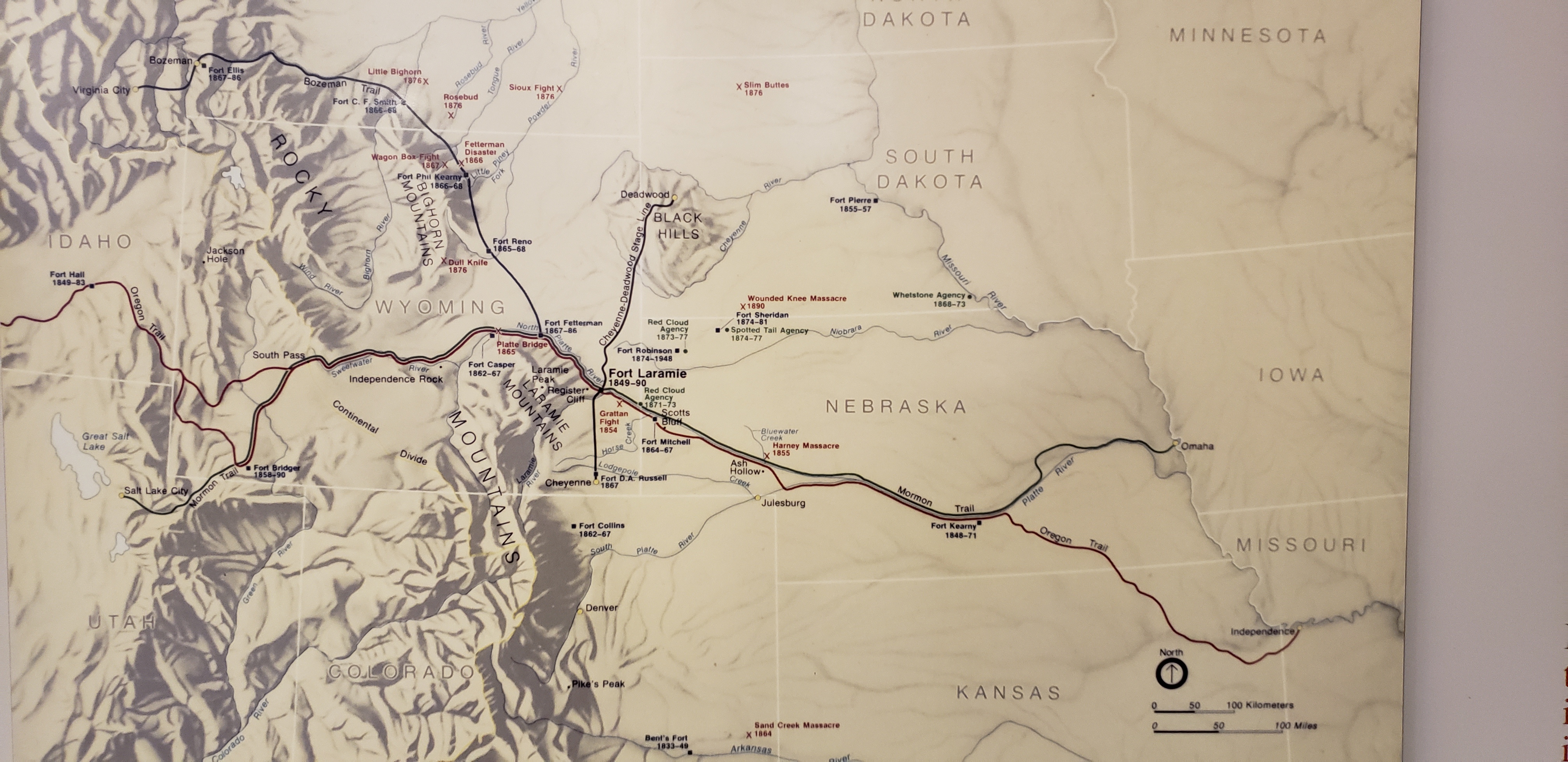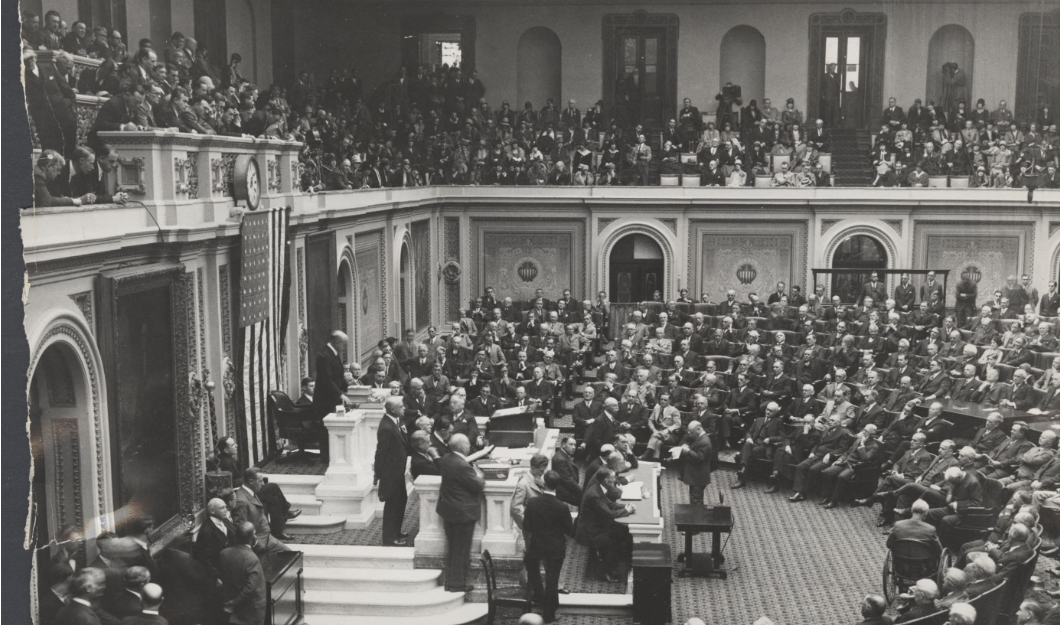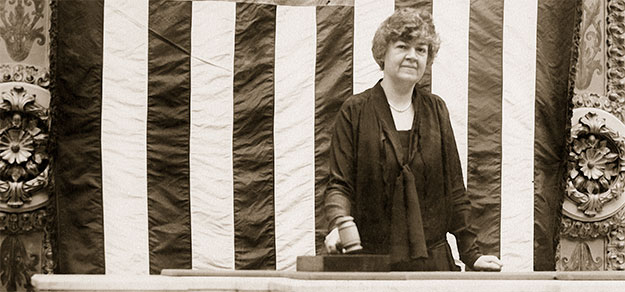|
Charles Edwin Winter
Charles Edwin Winter (September 13, 1870April 22, 1948) was an American attorney, politician, and author who served as a member of the United States House of Representatives for Wyoming's at-large congressional district from 1923 to 1929. Early life and education Born in Muscatine, Iowa, he attended public schools and Iowa Wesleyan College in Mount Pleasant. He graduated from the Nebraska Wesleyan University in 1892, studied law, and was admitted to the bar in 1895. Career Winter began his legal career in Omaha, Nebraska. He moved to Encampment, Wyoming, in 1902 and to Casper in 1903. He was a delegate to the Republican National Convention in 1908 and was a judge of the sixth judicial district of Wyoming from 1913 to 1919. He resigned from the bench and resumed the practice of law at Casper. Winter was elected as a Republican to the Sixty-eighth, Sixty-ninth, and Seventieth Congresses, serving from March 4, 1923 to March 3, 1929; he was not a candidate for renomination ... [...More Info...] [...Related Items...] OR: [Wikipedia] [Google] [Baidu] |
Attorney General Of Puerto Rico
The secretary of justice of Puerto Rico ( es, Secretario de Justicia de Puerto Rico) (known as the attorney general of Puerto Rico prior to the Constitution of Puerto Rico in 1952) is the chief legal officer and the attorney general of the government of Puerto Rico. Attorneys general The attorney general was appointed by the president of the United States and confirmed by the U.S. Senate. *1908–1910: Henry W. Hoyt *1910–1912: Foster H. Brown *1912–1914: Walcott H. Pitkin *1914–1919: Howard L. Kern *1919–1923: Salvador Mestre *1923–1925: Herbert P. Coats *1925–1928: George C. Butte *1928-1932: James R. Beverley *1932-1933: Charles E. Winter *1933-1935: Benjamin Jason Horton *1935-1939: Benigno Fernández García *1940–1942: George A. Malcolm *1943-1944: Manuel Rodríguez Ramos - Interim *1944: Jesús A. González - Interim *1945: Luis Negrón Fernández - Interim *1945–1946: Enrique Campos del Toro *1947-1948: Luis Negrón Fernández *1949-19 ... [...More Info...] [...Related Items...] OR: [Wikipedia] [Google] [Baidu] |
Encampment, Wyoming
Encampment (also known as Grand Encampment) is a town in southern Carbon County, Wyoming, United States. The population was 450 at the 2010 census. History Known also as " Grand Encampment", this town along the Colorado-Wyoming border was, at the turn of the twentieth century, a booming center of copper mining and smelting. At one point a sixteen-mile tramway was built to carry copper ore from the mountains into the town for smelting. This steam powered tramway was, at the time, the longest in the world. A sharp drop in copper prices and disastrous fires drove the mining company into bankruptcy. Mining operations ceased in the early twentieth century. A large sawmill operated in the town between 1950 and 1998. The Grand Encampment Museum is located in Encampment. It highlights the copper mining, ranching, logging history in the area. It includes over 15 historic buildings and thousands of interesting objects. A research library is located in the main gallery, the Doc Culleton ... [...More Info...] [...Related Items...] OR: [Wikipedia] [Google] [Baidu] |
Classes Of United States Senators
The 100 seats in the United States Senate are divided into three classes for the purpose of determining which seats will be up for election in any two-year cycle, with only one class being up for election at a time. With senators being elected to fixed terms of six years, the classes allow about a third of the seats to be up for election in any presidential or midterm election year instead of having all 100 be up for election at the same time every six years. The seats are also divided in such a way that any given state's two senators are in different classes so that each seat's term ends in different years. Class 1and 2 consist of 33 seats each, while class3 consists of 34 seats. Elections for class1 seats took place most recently in 2018, class2 in 2020, and the elections for class3 seats in 2022. The three classes were established by ArticleI, Section 3, Clause2 of the U.S. Constitution. The actual division was originally performed by the Senate of the 1st Congress in May ... [...More Info...] [...Related Items...] OR: [Wikipedia] [Google] [Baidu] |
Frank Wheeler Mondell
Frank Wheeler Mondell (November 6, 1860August 6, 1939) was a United States representative of Wyoming. Biography Born in St. Louis, Missouri, he was educated in the public schools. For many years he was engaged in farming, stock-raising, and railroad construction. He settled in the Wyoming Territory in 1887, was mayor of Newcastle from 1888 to 1895, and served in Congress from 1895 to 1897 and once again from 1899 to 1923. He was majority leader in the Sixty-sixth and Sixty-seventh Congresses on the floor of the House and took a prominent part in framing the legislation passed by that body. He took an active part in all the Republican conventions from 1902 to 1924 when he was a chairman at the 1924 Republican National Convention. He died in 1939 in Washington, D.C. ) , image_skyline = , image_caption = Clockwise from top left: the Washington Monument and Lincoln Memorial on the National Mall, United States Capitol, Logan Circle, Jefferson Me ... [...More Info...] [...Related Items...] OR: [Wikipedia] [Google] [Baidu] |
South Pass (Wyoming)
South Pass (elevation and ) is the collective term for two mountain passes on the American Continental Divide, in the Rocky Mountains in southwestern Wyoming. It lies in a broad high region, wide, between the nearly Wind River Range to the north and the over Oregon Buttes and arid, saline near-impassible Great Divide Basin to the south. The Pass lies in southwestern Fremont County, approximately SSW of Lander. Though it approaches a mile and a half high, South Pass is the lowest point on the Continental Divide between the Central and Southern Rocky Mountains. The passes furnish a natural crossing point of the Rockies. The historic pass became the route for emigrants on the Oregon, California, and Mormon trails to the West during the 19th century. It was designated as a U.S. National Historic Landmark on January 20, 1961. History Though well known to Native Americans, South Pass was first traversed in 1812 by European American explorers who were seeking a safer way to retur ... [...More Info...] [...Related Items...] OR: [Wikipedia] [Google] [Baidu] |
Dangerous Love (1920 Film)
''Dangerous Love'' is a 1920 American silent Western film based on the 1917 novel ''Ben Warman'' by Charles E. Winter, who would later become a congressman for Wyoming. The film was directed by Charles Bartlett, and stars Pete Morrison, Carol Holloway, Ruth King, Jack Richardson, and Spottiswoode Aitken. The movie was shot at the Lakeside Studios in Denver, Colorado. The feature had previously been announced under several titles before its release, including ''The Vanishing Strain'', ''Ben Warman'', ''A Good Bad Man'', and ''Broken Promises''. Synopsis Ben Warman, a likable boy with a proclivity for gambling and fighting, alienates the owner of a saloon in a Western mining town by helping a girl remove her drunken father from the premises. In so doing he makes a friend of the Woman, a young school teacher who makes Ben promise to give up his vices. Their romance is endangered, however, by the arrival of an Eastern girl, who takes a fancy to Ben, and her brother, who falls for ... [...More Info...] [...Related Items...] OR: [Wikipedia] [Google] [Baidu] |
Wyoming (song)
"Wyoming" is the state song of Wyoming. Judge Charles Edwin Winter (1870–1948) wrote the words during the summer of 1903, and Earle R. Clemens (1878–1943) wrote music to it soon thereafter. They copyrighted the song in 1913 and the Wyoming Publishing Company in Casper published it that same year and the song became the unofficial Wyoming state song. Clemens was a newspaper editor for the ''Grand Encampment Herald'', the newspaper of Grand Encampment, Wyoming. In 1920, George Edwin Knapp (1886–1967) composed a new melody for Judge Winter's poem. He copyrighted and published it through Richter Music Company of Casper. The song was adopted as the official state song on February 15, 1955. Knapp — a baritone singer and choral conductor — was professor of voice and director of the music department University of Wyoming from 1920 to 1930. History Governor Fenimore Chatterton has been credited as the first to announce "Wyoming" as the official state song, during a 19 ... [...More Info...] [...Related Items...] OR: [Wikipedia] [Google] [Baidu] |
Acting Governor
An acting governor is a person who acts in the role of governor. In Commonwealth jurisdictions where the governor is a vice-regal position, the role of "acting governor" may be filled by a lieutenant governor (as in most Australian states) or an administrator. In some U.S. states, it is a constitutional position created when the governor dies in office or resigns. In other states, the governor may also be declared to be incapacitated and unable to function for various reasons including illness and absence from the state for more than a specified period. In these instances, the state constitution will declare which official is to serve as governor and whether this person will have all of the powers of the office or only specified ones. In many states, the person succeeding to the governorship or becoming acting governor is the lieutenant governor; however, not all states have such a position. If the state constitution provides for an acting governor in the event of the governor ... [...More Info...] [...Related Items...] OR: [Wikipedia] [Google] [Baidu] |
Secretary Of Justice Of Puerto Rico
The secretary of justice of Puerto Rico ( es, Secretario de Justicia de Puerto Rico) (known as the attorney general of Puerto Rico prior to the Constitution of Puerto Rico in 1952) is the chief legal officer and the attorney general of the government of Puerto Rico. Attorneys general The attorney general was appointed by the president of the United States and confirmed by the U.S. Senate. *1908–1910: Henry W. Hoyt *1910–1912: Foster H. Brown *1912–1914: Walcott H. Pitkin *1914–1919: Howard L. Kern *1919–1923: Salvador Mestre *1923–1925: Herbert P. Coats *1925–1928: George C. Butte *1928-1932: James R. Beverley *1932-1933: Charles E. Winter *1933-1935: Benjamin Jason Horton *1935-1939: Benigno Fernández García *1940–1942: George A. Malcolm *1943-1944: Manuel Rodríguez Ramos - Interim *1944: Jesús A. González - Interim *1945: Luis Negrón Fernández - Interim *1945–1946: Enrique Campos del Toro *1947-1948: Luis Negrón Fernández *1949-19 ... [...More Info...] [...Related Items...] OR: [Wikipedia] [Google] [Baidu] |
70th Congress
The 70th United States Congress was a meeting of the legislative branch of the United States federal government, consisting of the United States Senate and the United States House of Representatives. It met in Washington, D.C. from March 4, 1927, to March 4, 1929, during the last two years of Calvin Coolidge's presidency. The apportionment of seats in the House of Representatives was based on the thirteenth decennial census of the United States in 1910. Both chambers had a Republican majority - albeit reduced from the previous Congress - and along with President Coolidge, the Republicans maintained an overall federal government trifecta. Major events * November 6, 1928: U.S. Senate elections and U.S. House elections * This was the last Congress to be exclusively white and the last to not have a single black member of Congress in either chamber. Major legislation * March 10, 1928: Settlement of War Claims Act * May 15, 1928: Flood Control Act of 1928 (Jones–Reid Act) * ... [...More Info...] [...Related Items...] OR: [Wikipedia] [Google] [Baidu] |
69th Congress
The 69th United States Congress was a meeting of the legislative branch of the United States federal government, consisting of the United States Senate and the United States House of Representatives. It met in Washington, D.C. from March 4, 1925, to March 4, 1927, during the third and fourth years of Calvin Coolidge's presidency. The apportionment of seats in the House of Representatives was based on the thirteenth decennial census of the United States in 1910. The Republicans made modest gains in maintaining their majority in both chambers, and with the election of President Calvin Coolidge to his own term in office, the Republicans maintained an overall federal government trifecta. Major events A special session of the Senate was called by President Coolidge on February 14, 1925. * Impeachment of Judge George W. English — On April 1, 1926, the House of Representatives impeached Judge George W. English of the United States District Court for the Eastern District of Illinoi ... [...More Info...] [...Related Items...] OR: [Wikipedia] [Google] [Baidu] |




